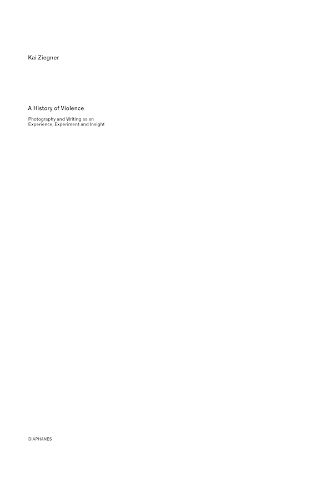Readings Newsletter
Become a Readings Member to make your shopping experience even easier.
Sign in or sign up for free!
You’re not far away from qualifying for FREE standard shipping within Australia
You’ve qualified for FREE standard shipping within Australia
The cart is loading…






An artistic study of the Wendezeit in East Germany.
The focus of this narrative-analytical text-photo-montage is the so-called Wendezeit in East Germany, the years after the reunification, and the individual and collective outbreaks of violence that accompanied this radical change. Based on personal experiences and trained on literary and theoretical works such as Alexander Kluge's Case Histories, Klaus Theweleit's Male Fantasies, and W.G. Sebald's novel Austerlitz, Kai Ziegner reflects on remembrance and testimony in a way that is as critical as it is experimental.
Where and how do authoritarian regimes and structures persist across generations? What scars can be read on the fault lines of disruptive processes and how to deal with-not only historical-situations in which the protagonists are victims and perpetrators at the same time? Ziegner's artistic research shows how the unpresentable can become visible, how the ambiguous can be told, and how a differentiated processing can be made possible.
$9.00 standard shipping within Australia
FREE standard shipping within Australia for orders over $100.00
Express & International shipping calculated at checkout
An artistic study of the Wendezeit in East Germany.
The focus of this narrative-analytical text-photo-montage is the so-called Wendezeit in East Germany, the years after the reunification, and the individual and collective outbreaks of violence that accompanied this radical change. Based on personal experiences and trained on literary and theoretical works such as Alexander Kluge's Case Histories, Klaus Theweleit's Male Fantasies, and W.G. Sebald's novel Austerlitz, Kai Ziegner reflects on remembrance and testimony in a way that is as critical as it is experimental.
Where and how do authoritarian regimes and structures persist across generations? What scars can be read on the fault lines of disruptive processes and how to deal with-not only historical-situations in which the protagonists are victims and perpetrators at the same time? Ziegner's artistic research shows how the unpresentable can become visible, how the ambiguous can be told, and how a differentiated processing can be made possible.